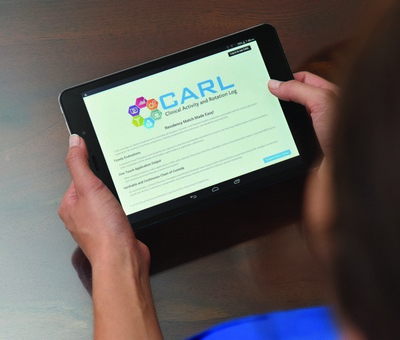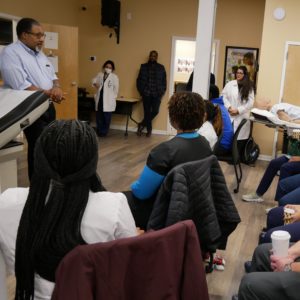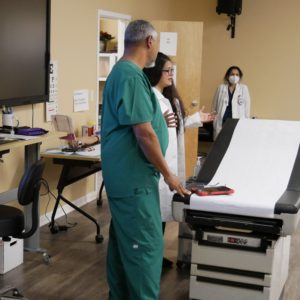Why Use CARL?
The Clinical Activity Rotation Log, or CARL, is designed to be an innovative tool for tracking clinical experiences while providing an unbroken verifiable chain of custody of critical documentation. CARL enhances the medical education and student experience beyond all traditional means of patient encounter, according to its developers.
Lead programmer for CARL, Richard Levy said about the student process between clinical rotation and residency, “CARL brings structure to a non-structured environment.” The students at the American University of Integrative Sciences were the first to experience the new technology approach provided by CARL, according to Gwen Garner, AUIS director of admissions.
CARL gives the medical student a means with which to evaluate their learning and to access built-in reference materials used in the medical licensing exam.
Created by a team of engineers, CARL provides three levels of communication among the medical student, preceptor, clinical dean and the medical university; therefore, it keeps each user engaged in the learning process and clerkship experience while maintaining verifiable documentation. The programing involved in making CARL interactive is continuously changing with patch updates and modifications. Basic Science students pay $133 each term while Clinical Medicine students pay $133 per clerkship toward this cost.
Previously, software updates and upgrades were described as a maintenance fee. However, this gave the impression that what was being paid for was merely minor repairs to the tablet or patches to fix software glitches. On the contrary, CARL is so much more, as explained by Rich Rouse, CARL sales director. These charges more accurately reflect continuous and ongoing software upgrades, added videos, presentations, study materials, and instructor guided reading materials based on the needs of each student, Rouse said.
“CARL is an interface that is organic,” said Rouse. “Whether students realize it or not, it’s continuously growing. The data is accessed via a cloud network which makes coordination of detailed notes more efficient than traditional methods. It is purpose-built software designed to efficiently facilitate clinical data sharing between the medical student and the university.”
Rouse explains through CARL, students can provide positive feedback which translates to future implementations to improve the student’s learning and clinical experience. “Student input allows the material to grow,” said Rouse.
Long after students have finished their formal education or clinical studies, CARL will be of use to them, said Rouse.
“Not only will practicing physicians be able to use CARL to track their credentialing and licensing,” said Rouse, “they will be able to keep account of their continuing education credits and license renewals.”
The components within CARL allow students to record their clinical progress, document patient procedures, academic progress and share findings beyond the classroom or clinical settings.
“CARL provides a verifiable, uninterrupted chain of data custody,” Rouse added.
Using this device, future doctors may take advantage of the wealth of various reference material in CARL to review procedures and continuously improve medical knowledge.
“Some of the utilities CARL is designed to manage will take students from Basic Sciences through residency and beyond,” said Garner. “AUIS will continue to revise CARL so as to improve your academic experience and assure you have the technology resources at your fingertips to improve test scores and residency match success.”
Our engineering team solicits and requests student feedback for improvements. We strive to make CARL the best complement to your medical educational experience.
“Obviously, medical students seek to become doctors,” said Rouse. “A major milestone to that end is obtaining the desired residency. For decades, medical students were burdened with paper note taking, which may have led to errors in records, lost notes, missed opportunities and potentially broken dreams. CARL compiles notes a student needs to improve his chances of being matched. That’s why we refer to CARL as residency match made easy.”



